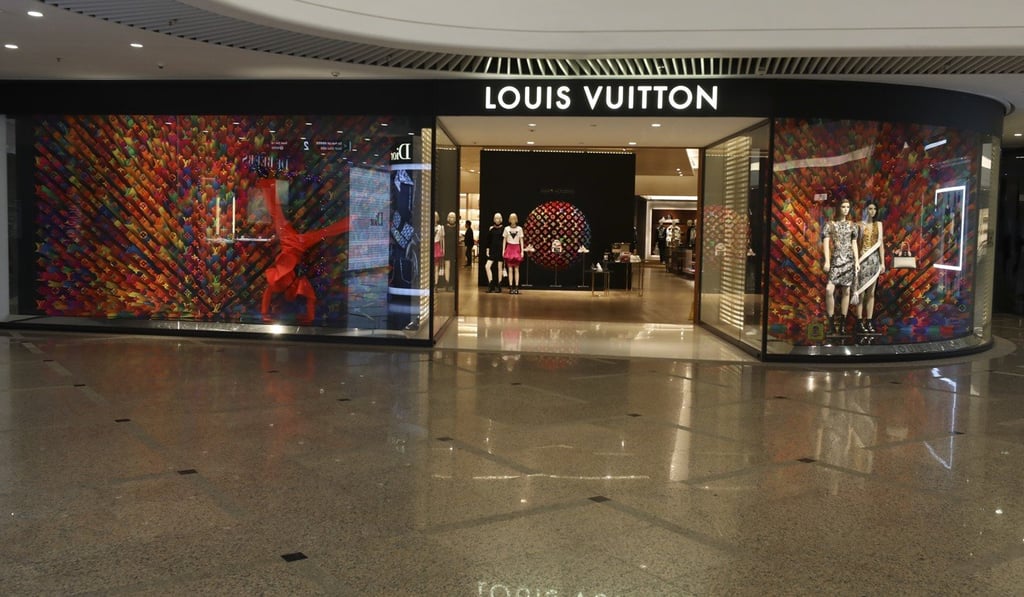Louis Vuitton plans to close Hong Kong luxury store hit by protests; shopping mall apparently refused a rent cut
- Leading global brand’s pull-out from Times Square mall in Causeway Bay shopping district would be first luxury store closure in reaction to Hong Kong protests
- Violent protests have caused sharp drop in visitors from China, main customers of luxury stores; Louis Vuitton parent LVMH has moved some sales staff to China

Louis Vuitton, the world’s top luxury brand, is the first label to respond to the impact of the anti-government protests that have gripped Hong Kong for the past seven months by closing one of its stores in the city.
According to sources familiar with the matter, the brand, which is owned by luxury group LVMH, plans to shut its store in the Times Square mall in the shopping district of Causeway Bay, after the mall’s owner, Wharf Real Estate Investment Corporation (Wharf Reic), refused a request to lower the rent on its prime second-floor space.
Louis Vuitton has eight stores in Hong Kong, one of them in the nearby Lee Gardens mall, just a four-minute walk from Times Square. It has previously announced plans to open a ninth store at Hong Kong International Airport in 2021.
The French label’s large retail footprint in the city, which is similar to that of other luxury brands, made sense in the past when Hong Kong attracted large numbers of shoppers from mainland China, who travelled to the city to take advantage of lower prices for luxury goods. (Hong Kong is a free port and does not impose customs tariffs on imported goods.)
